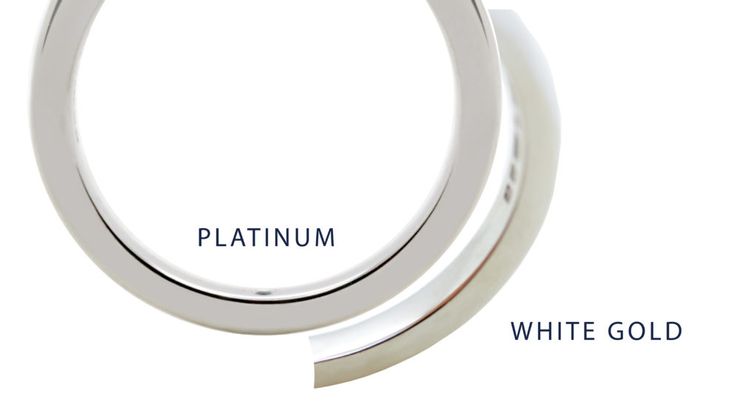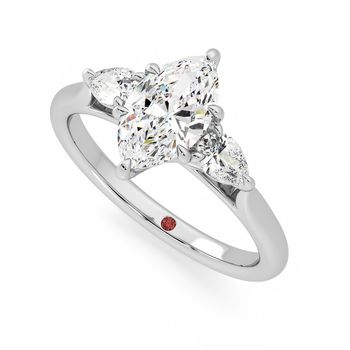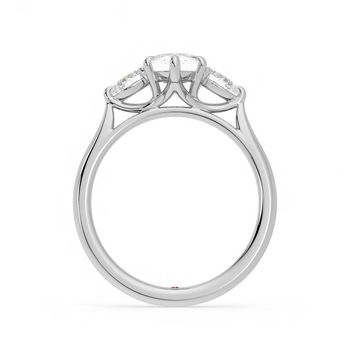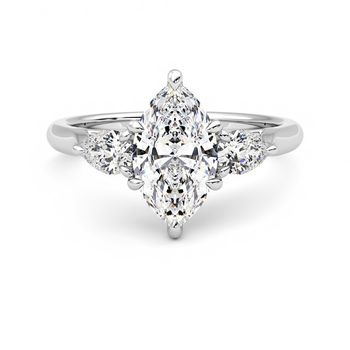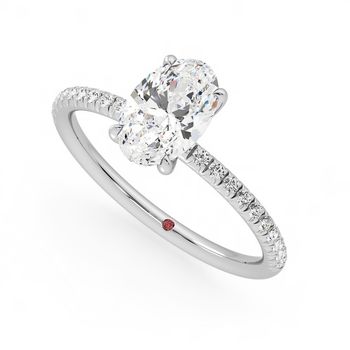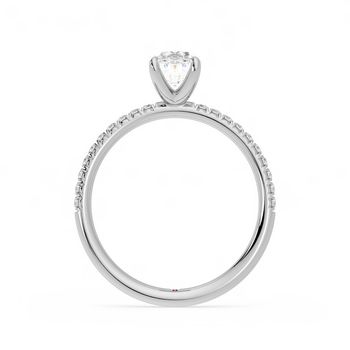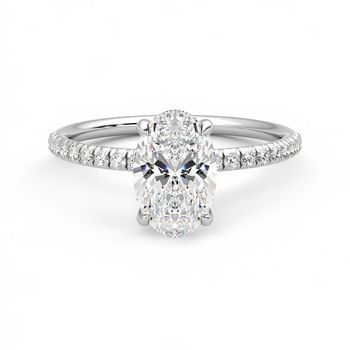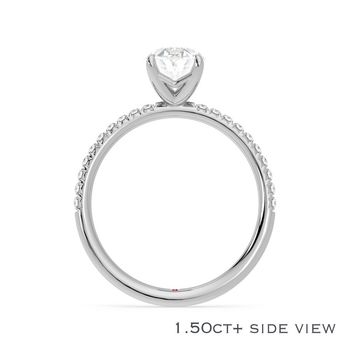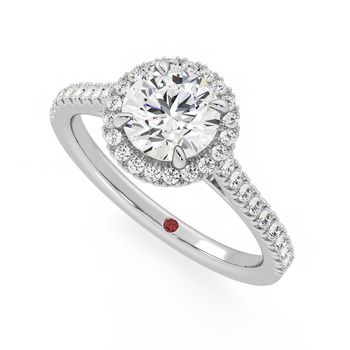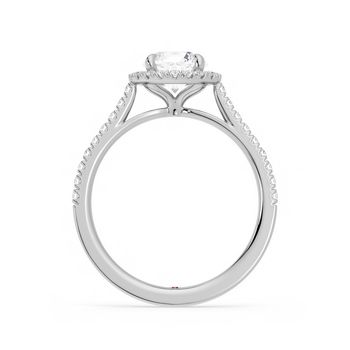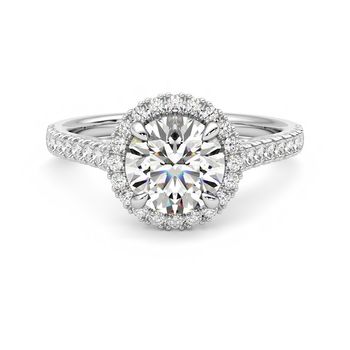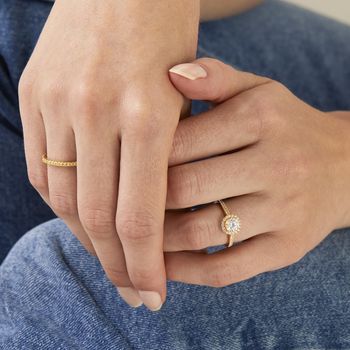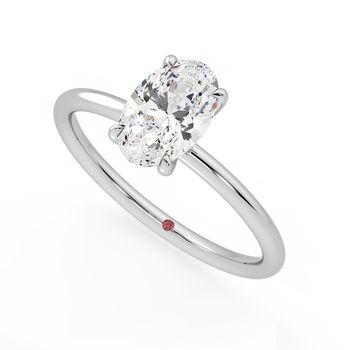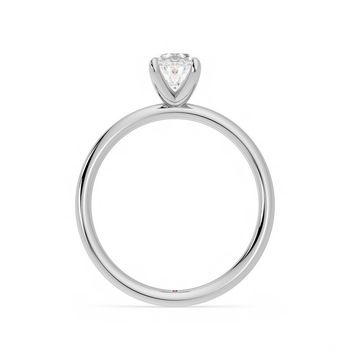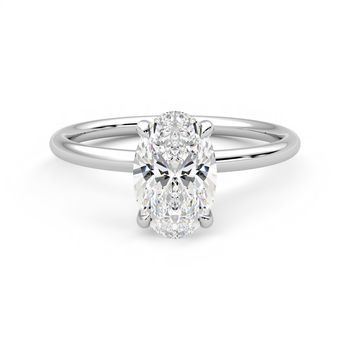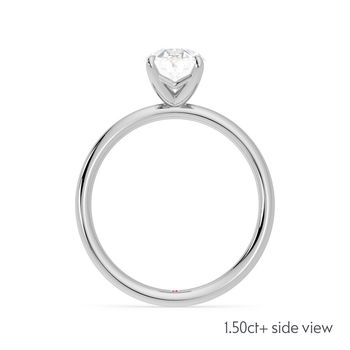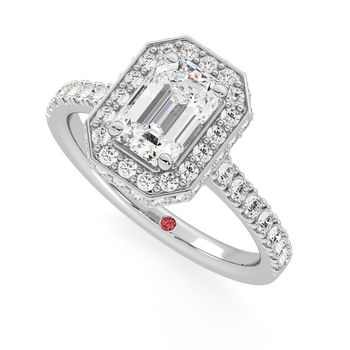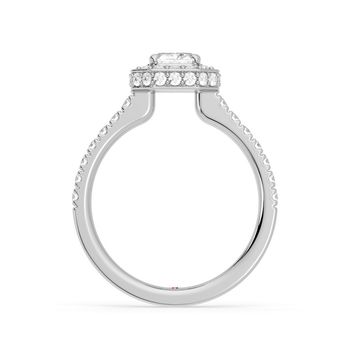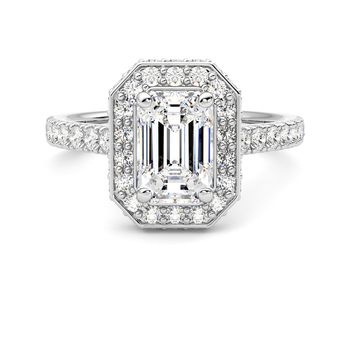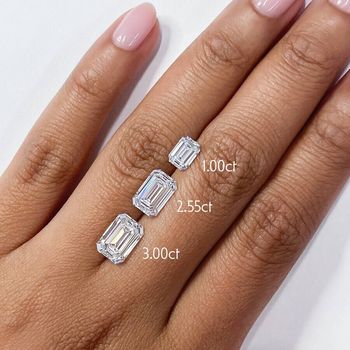What is white gold?
White gold is made up of pure gold mixed with other white metal(s).
What is white gold made from?
Pure gold isn’t suitable for every day jewellery as it is too soft.
White gold is achieved by blending 24 carat gold (75%) and other white metals (25%), also known as alloys, like nickel, palladium or silver. These alloys makes white gold a light grey colour.
Even with the added metal alloys, white gold isn’t white at all, but a light grey colour. It’s actually the rhodium plating that gives white gold its much sought-after colour.
Popular white gold rings
Why should I choose a white gold ring?
This popular precious metal remains a classic choice for engagement and wedding rings. Appealing to modern brides and grooms who desire the weight and feel of gold with the colour and brightness of platinum.
Diamonds take centre stage when set in white gold be it an ornate or simple design.
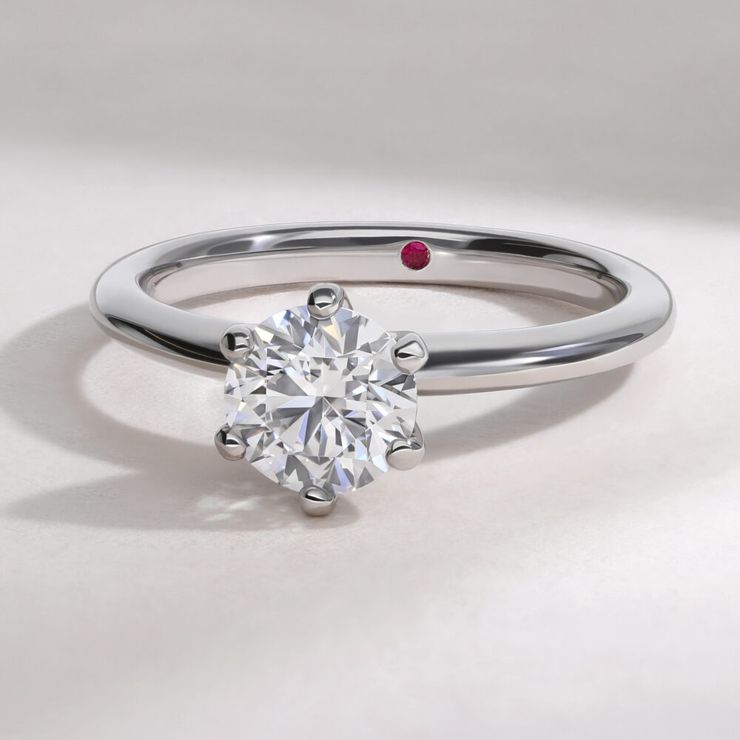
What kind of maintenance is required for white gold?
How to look after white gold
To retain its bright sheen, white gold is plated with rhodium. With time, rhodium plating will wear away, revealing a yellow-ish tinge. Rhodium plating needs replating every 12-18 months to maintain its lustre and radiance.
So while white gold is initially more affordable, there is a maintenance cost involved every 18 months or so.
It’s for this reason that one of the most frequent questions we hear is ‘should I choose platinum or white gold?’ Read the pros and cons of platinum vs white gold below.
Platinum vs white gold
White gold
Gold in its natural state is yellow. In order for white gold to appear white in colour, gold must be mixed (also known as alloyed) with a white metal(s) like nickel, palladium or silver which makes white gold a light grey colour.
To give white gold its sought after sheen, it is then rhodium plated. With time, rhodium plating will wear away revealing a yellow-ish tinge, and the ring will need replating every 12-18 months to maintain its lustre and radiance. So while white gold is initially more affordable, there is a maintenance cost involved every 18 months or so.
Platinum
While offering a similar finished appearance to white gold, platinum won’t require this same level of maintenance due to its natural bright white appearance.
In fact, platinum’s shine is easy to retain with a simple polish. This exclusive material is mined at a rate of 1/10 that of gold, hence its premium price point. Lastly, platinum is nickel-free and hypoallergenic which is ideal for brides and grooms with sensitive skin as it can be worn comfortably every day.
Both metals make excellent choices – it’s totally down to personal preference having taken the level of maintenance into consideration. To read more about how to consider the two metals, visit our platinum vs white gold guide.
